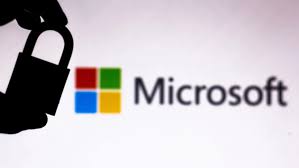Microsoft Security for Enterprise: Protecting Your Business Data
Introduction:
In today’s digital landscape, businesses face a myriad of security challenges that require robust measures to safeguard their valuable data. Microsoft provides a comprehensive suite of security solutions designed specifically for enterprises. In this article, we will explore the key components of Microsoft security for enterprise and how they help protect your business data.
- Azure Active Directory (Azure AD): Azure AD is Microsoft’s cloud-based identity and access management solution. It enables businesses to manage user identities, enforce strong authentication methods, and control access to resources. Key features include:
- Single sign-on (SSO) for seamless access to various applications.
- Multi-factor authentication (MFA) to add an extra layer of security.
- Conditional access policies to control access based on various factors.
- Identity protection to detect and mitigate identity-related risks.
- Microsoft Defender for Endpoint: Formerly known as Windows Defender ATP (Advanced Threat Protection), Microsoft Defender for Endpoint offers advanced threat protection and endpoint security for enterprise environments. Key features include:
- Endpoint detection and response (EDR) capabilities for proactive threat hunting.
- Real-time protection against malware, ransomware, and other advanced threats.
- Exploit protection to prevent software vulnerabilities from being exploited.
- Integration with other security solutions for unified management and threat response.
- Microsoft 365 Security: Microsoft 365 Security provides a holistic approach to securing productivity and collaboration tools. Key components include:
- Microsoft Information Protection to classify and protect sensitive data across devices, apps, and services.
- Threat intelligence and analytics to detect and respond to advanced threats.
- Data loss prevention (DLP) to prevent unauthorized sharing of sensitive information.
- Advanced email security with anti-phishing and anti-malware capabilities.
- Azure Security Center: Azure Security Center is a unified security management and threat protection solution for cloud environments. Key features include:
- Continuous monitoring and threat detection for cloud resources.
- Security recommendations and best practices to improve your security posture.
- Integration with Azure Defender for enhanced threat protection.
- Compliance assessments to ensure adherence to regulatory requirements.
- Microsoft Cloud App Security: Microsoft Cloud App Security provides visibility and control over cloud applications and services used in your organization. Key features include:
- Discovery of shadow IT and unsanctioned cloud applications.
- Data loss prevention (DLP) policies for cloud services.
- Conditional access and granular controls to manage access to cloud applications.
- Threat protection and anomaly detection for cloud usage.
Conclusion:
Microsoft’s comprehensive suite of security solutions for enterprises offers powerful protection against modern security threats. By leveraging Azure Active Directory, Microsoft Defender for Endpoint, Microsoft 365 Security, Azure Security Center, and Microsoft Cloud App Security, businesses can enhance their security posture and safeguard their valuable data. Implementing Microsoft security solutions provides a strong foundation for protecting your enterprise and mitigating risks in today’s evolving threat landscape.

























